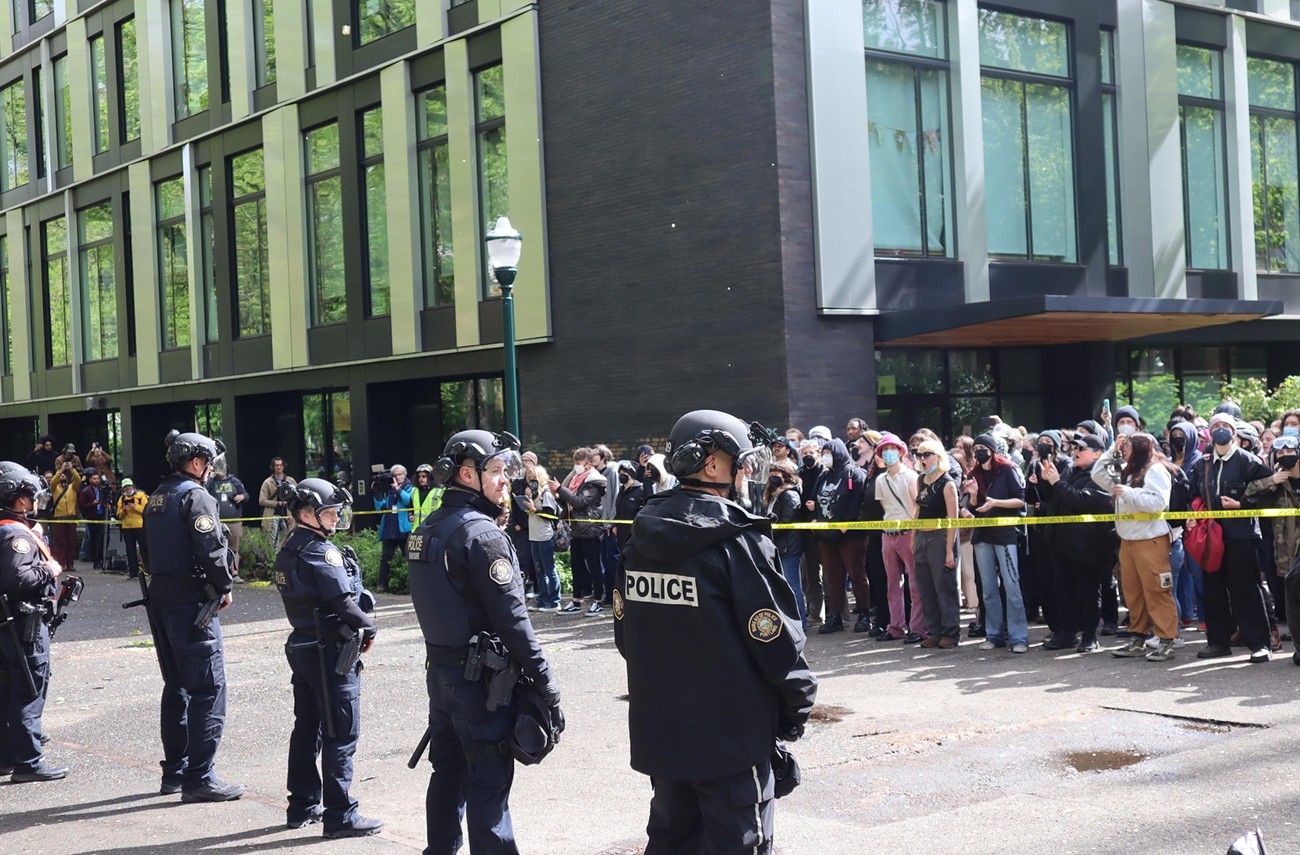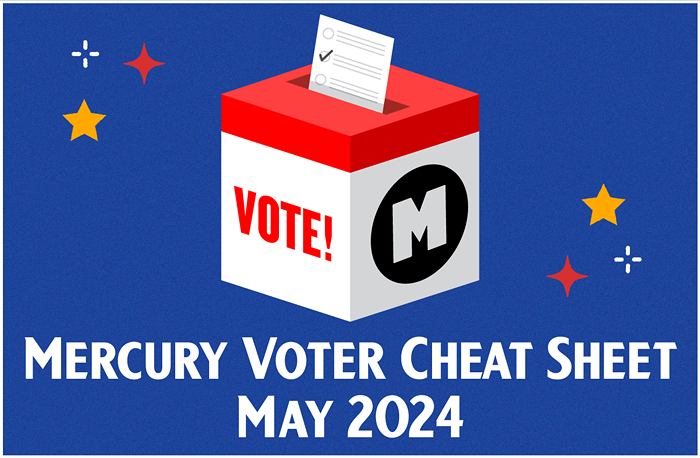As city bureaus are undergoing budget cuts to address a projected funding shortfall in the next budget cycle, the city of Portland will spend an estimated $1.1 million on shields, munitions, and training for police.
In what was termed as an "emergency vote" on Wednesday, Portland City Council unanimously approved allocating additional funds to the Portland Police Bureau to buy shields for officers, and replace soon-to-expire less lethal weapons used during crowd control events. The weapons spending comes two months after the police bureau got the council’s approval to begin internal recruiting–with incentive bonuses–for the bureau’s new public order, or crowd control team.
PPB cites “recent world events” and “the upcoming election cycle” as primary catalysts for the weapons re-stock, noting increased demand for less lethal weapons across the country could threaten the overall supply.
The public order team responds to events like large demonstrations, protests, emergency events, presidential visits, and other instances of large crowd gatherings. The police bureau’s previous crowd control team, called the Rapid Response Team (RRT), disbanded in 2021 when every member of the team quit in protest over the indictment of RRT officer Corey Budworth. Budworth was charged with using excessive force on a female photojournalist during the 2020 racial justice protests.
PPB is buying new munitions despite already having a robust stockpile. According to the latest inventory report, PPB has about 5,820 chemical irritant munitions on hand; nearly 3,000 impact munitions-like projectiles, and around 800 “distraction devices” including smoke bombs and similar canister weapons. The bureau says the less lethal weapons have a five-year shelf life and need to be replaced periodically.
The hefty budget allowance and recent reestablishment of the crowd control team has sparked concern among the public and reignited discussions about how police manage protests.
A city-commissioned, independent review of PPB’s handling of the 2020 protests found several areas for improvement. The report recommended training updates and advised PPB to assemble a public order team with appropriate tactical equipment. The report also advised the bureau to “dramatically reduce its reliance on crowd dispersals with [riot control agents] like CS gas” while policing demonstrations and other large events.
A separate city audit done in conjunction with Portland's Independent Police Review board looked at the police bureau’s handling of the protests and found officers were quick to issue dispersal orders and use munitions.
Auditors noted more than 6,000 uses of force by PPB.
“Night after night, the Bureau and other law enforcement agencies cited crowd behavior as the rationale for using force but struggled to build prosecutable cases of criminal conduct by individuals,” the 2022 audit notes.
To date, the city has paid out nearly $2.85 million to settle lawsuits over bodily injury claims to protesters and observers during the 2020 protests.
Jane Moisan is an attorney who represented plaintiffs in some of those lawsuits.
Moisan, of the People’s Law Project, voiced lingering concerns over how PPB will handle future protests.
“Anytime you’re stockpiling weapons to use against protesters it’s concerning,” Moisan says. “I've represented plaintiffs in Portland and New York City. When it comes to policing protests, the major issue is just the indiscriminate use of weapons on a large crowd.”
A key driver in the use of weapons like batons and tear gas is the declaration of a riot. When police declare a riot, dispersal orders are typically issued, but what constitutes a riot isn’t well defined. During the nightly protests in 2020, police were often quick to declare an unlawful assembly or a riot, sometimes in response to water bottles hurled at officers, or rocks thrown at buildings.
The munitions used by police to break up a group often impact a large area, meaning even people who aren’t engaged in violence or damage suffer the effects of explosive sounds, pepper spray, and tear gas.
“The vast majority of people are just there peacefully, aren't [engaging in] violence, and pose no threat to the public,” Moisan says.
As police gear up for increased protests in the coming months, Moisan isn’t convinced their tactics will change.
PPB Commander Franz Schoening said the landscape has changed since 2020. Police are now more limited in how they can use munitions like tear gas to quell unruly crowds. Schoening also said the bureau’s Public Order Team is undergoing extensive training, and will lean less heavily on munitions and other uses of force during protests and demonstrations.
"I’ve heard personally, some concerns from the community members who believe this agenda item reflects a belief that the Portland Police Bureau is going to return to policing these events with a heavy hand,” Schoening told City Council Wednesday. “I’ve also heard from community members that since 2020, there’s a fear, a visceral fear of returning to the unrest and disturbances to the downtown community we experienced. My message to you is, it’s not a zero-sum game. I think we can hold both those truths at the same time.”
PPB didn’t elaborate on how the crowd control training has changed since 2020, but reiterated that the steps being taken were direct recommendations from the independent monitor’s 2023 report.
PPB is aware of the significant public interest in the new Rapid Response Team. "The team is still in the process of being trained,” PPB Sgt. Kevin Allen told the Mercury. “We have plans to introduce the community to the team, talk about the new policies, standard operating procedures, and equipment, and answer questions before the team deploys. We will of course share more with you when appropriate.”
The council approved the weapons purchases despite objection over the quick decision making. Emergency ordinances don’t get a second reading, and are instead approved after one hearing and vote, then quickly implemented.
Chris Olson, a community organizer and current Portland City Council candidate, as well as Marc Poris from Portland Copwatch both urged the council to hold off on the vote until the public had more time to weigh in.
Poris also took issue with the scant details of the $1.1 million spending.
“Perhaps council has enough information to vote today on the emergency ordinance, but the public is once again being deprived of important information on how the city’s money is being spent,” Poris told the council. "This time it’s for munitions that may be used against people even when peacefully expressing our First Amendment rights.”
Olson objected not only to the timing, but the handling of protests by Portland police, including earlier this month at Portland State University.
“I have attended many of these protests and the only people who have escalated these protests were the Portland Police Bureau,” Olson said. “Police do not solve protests or make them safer.”
Olson cited a recent incident during a sizable demonstration against the war in Gaza at the PSU campus. Police ordered the crowd to move to a different block. A few hours later, a driver in a white sedan barreled toward the crowd, spraying mace at protesters as he drove through a pedestrian area.
Olson said PPB officers at the scene “did nothing” at the time in response to the driver, who fled on foot shortly after he was confronted by people at the scene. The driver was later found and arrested.
Mayor Ted Wheeler, who got the last word before casting his vote, acknowledged Olson’s comments about recent protests. Instead of noting the dangerous driver, the mayor admonished protesters who didn't follow dispersal orders.
“The Portland Police Bureau had speakers asking people to leave, in fact, insisting that people leave for the better part of an hour, and they chose not to” Wheeler said. “That is an act of defiance and you are entitled to that act of defiance, but then you shouldn’t whine, complain, and cry when there are consequences for that act of defiance.”




















